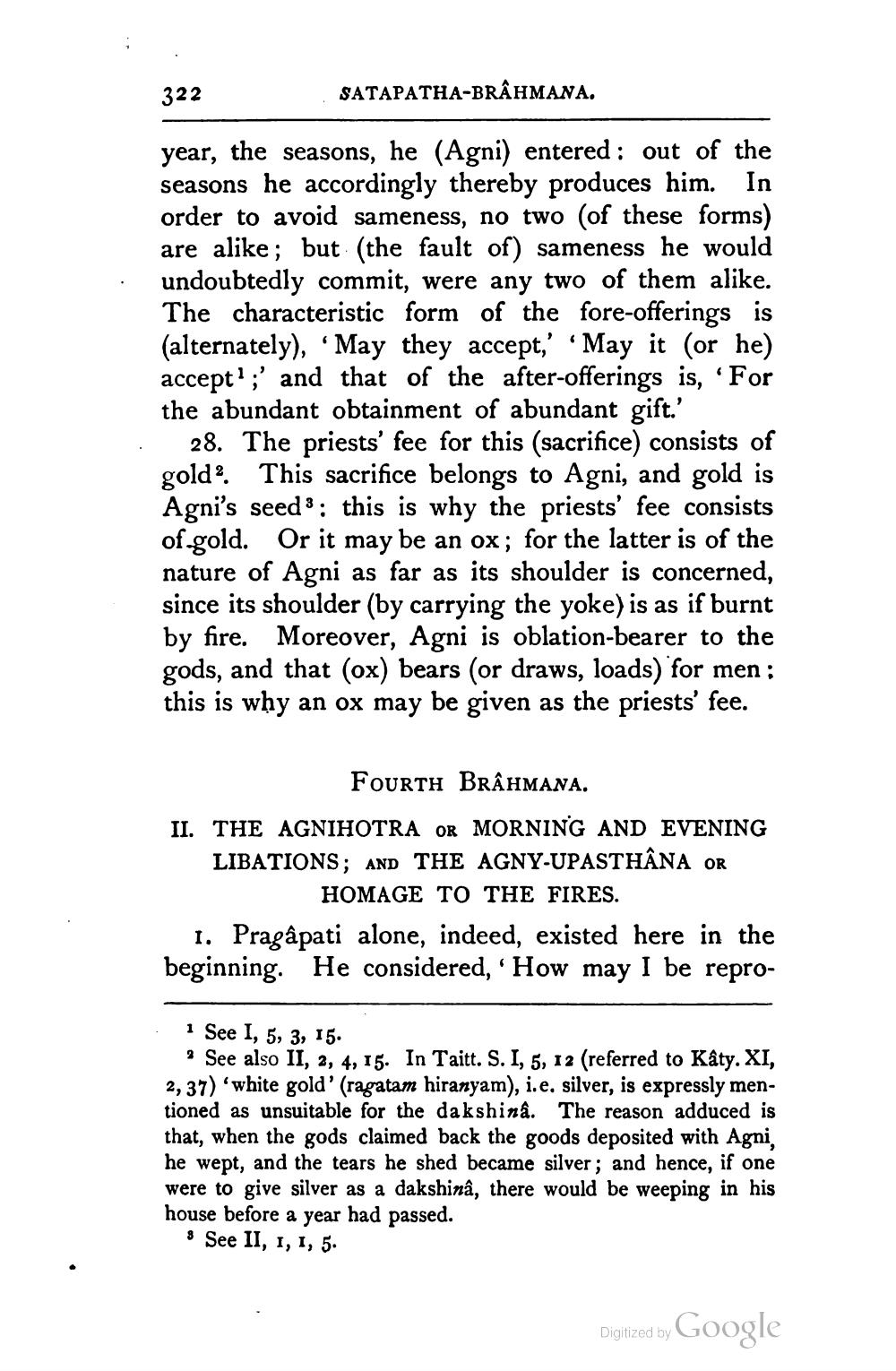________________
322
SATAPATHA-BRAHMANA.
year, the seasons, he (Agni) entered : out of the seasons he accordingly thereby produces him. In order to avoid sameness, no two (of these forms) are alike; but (the fault of) sameness he would undoubtedly commit, were any two of them alike. The characteristic form of the fore-offerings is (alternately), "May they accept,' May it (or he) accept';' and that of the after-offerings is, 'For the abundant obtainment of abundant gift.'
28. The priests' fee for this (sacrifice) consists of gold? This sacrifice belongs to Agni, and gold is Agni's seed 3 : this is why the priests' fee consists of gold. Or it may be an ox; for the latter is of the nature of Agni as far as its shoulder is concerned, since its shoulder (by carrying the yoke) is as if burnt by fire. Moreover, Agni is oblation-bearer to the gods, and that (ox) bears (or draws, loads) for men : this is why an ox may be given as the priests' fee.
Fourth BRÂHMANA. II. THE AGNIHOTRA OR MORNING AND EVENING LIBATIONS; AND THE AGNY-UPASTHÂNA OR
HOMAGE TO THE FIRES. 1. Pragâpati alone, indeed, existed here in the beginning. He considered, 'How may I be repro
• See I, 5, 3, 15.
* See also II, 2, 4, 15. In Taitt. S. I, 5, 12 (referred to Kâty. XI, 2,37) 'white gold' (ragatam hiranyam), i.e. silver, is expressly mentioned as unsuitable for the dakshina. The reason adduced is that, when the gods claimed back the goods deposited with Agni he wept, and the tears he shed became silver; and hence, if one were to give silver as a dakshina, there would be weeping in his house before a year had passed.
3 See II, 1, 1, 5.
Digitized by Google




